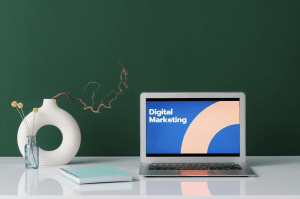
Digital marketing is hard, not least because it never stays still. Case in point: what worked a year ago – and worked really well at that – may already be outdated now. And with the rapid evolution of AI and automation, as well as consumer behavior, staying ahead has never been more tricky.
The good news is, if you make an effort to keep up with trends and technologies, you can not only remain competitive, but significantly boost your bottom line.
Right now, marketing is shifting toward extreme personalization, deeper automation, and immersive technologies that change how brands connect with audiences. If you’re smart, you’ll use these advancements to outperform the competition. Here’s how you can do that.
AI-Driven Insights Are Rewriting Marketing Playbooks
Marketing without AI is already a disadvantage. Advanced algorithms can now analyze data patterns faster and more accurately than human teams, discovering insights that can help you create smarter campaigns. From predictive analytics to sentiment analysis, AI removes much of the guesswork, helping you refine targeting, content strategies, and engagement models.
Hyperise, for example, integrates AI to create dynamic, hyper-personalized visuals that adapt in real time. Automation and personalization at this level ensures you’re always delivering the most relevant content to each user.
In addition to automation, AI can also help you stay agile. When you use AI-driven insights, you can reduce wasted ad spend, improve conversion rates, and make data-backed decisions that outperform intuition-based strategies.
Hyper-Personalization Is Reshaping Customer Expectations
Personalization has become standard in digital marketing because most consumers now expect brands to recognize their preferences, behavior, and purchase history. Bear in mind that if you want to stay ahead, traditional segmentation isn’t enough; hyper-personalization is what you need. This type of personalization uses AI, real-time data, and predictive modeling to tailor every single interaction.
Consider email marketing. Instead of sending a generic offer, AI-powered personalization tools can adjust product recommendations based on browsing history, past purchases, and even behavioral triggers (like cart abandonment). The result is higher open rates, better engagement, and increased conversions.
If you’re still relying on static customer profiles, it’s time to rethink your strategy. Personalized video marketing, AI-generated content suggestions, and dynamically tailored landing pages will be essential moving forward.
Automation Is Eliminating Manual Marketing Tasks
The future of digital marketing involves doing more with fewer resources. And this is possible with automation tools, which can handle repetitive tasks like email sequences, ad bidding, and even chatbot interactions mostly on their own.
For example, programmatic advertising. Instead of manually adjusting ad placements, AI-driven platforms analyze user data and adjust campaigns for optimal performance. Automated lead nurturing sequences do the same, ensuring prospects receive the right content at the right time without human intervention.
For businesses scaling up, automation is even more important. Brands that effectively implement marketing automation will reduce costs while increasing efficiency, making it easier to deliver high-quality, personalized experiences at scale.
Immersive Experiences Through VR and AR Are Reshaping Engagement
Virtual reality (VR) and augmented reality (AR) are moving beyond novelty status. As adoption grows, businesses are leveraging these technologies to create immersive experiences that deepen customer engagement.
For example, many retail brands are already using AR to allow customers to try products before purchasing. Real estate companies also use it, offering VR property tours which often eliminate the need for physical visits. And as AR integrates further into social media platforms, brands will have even more interactive ways to connect with audiences.
For marketers, this means rethinking content formats. Static images and videos are still effective, but interactive experiences will soon become the expectation rather than the exception.
Industry-Specific Digital Transformations Are Accelerating
It’s not just traditional marketing departments adapting to tech shifts – other industries are transforming too. Accounting firms and SaaS businesses, for instance, are integrating AI-driven financial modeling and automation to streamline workflows.
The CPA profession is undergoing an overhaul, with enhanced exam initiatives designed to keep professionals competitive in a tech-driven economy. If you’re planning to become a CPA, staying ahead of these technological advancements is essential.
Similarly, healthcare marketing is moving toward AI-powered patient engagement tools, while legal firms are automating lead generation and client intake processes. These shifts highlight a broader trend: If your industry hasn’t adapted yet, it will soon. Staying ahead means proactively adopting the right tech before your competitors do.
Wrapping Up
Like all industries that rely on evolving technologies, digital marketing is undergoing quite a transformation. AI-driven insights, hyper-personalization, automation, and immersive experiences, are just some of the things that are defining the next era of marketing.
Businesses that recognize these advancements and integrate them into their strategies will lead the pack, while those who ignore them will find it challenging (if not impossible) to keep up.
Last Updated on May 29, 2024 by Ash